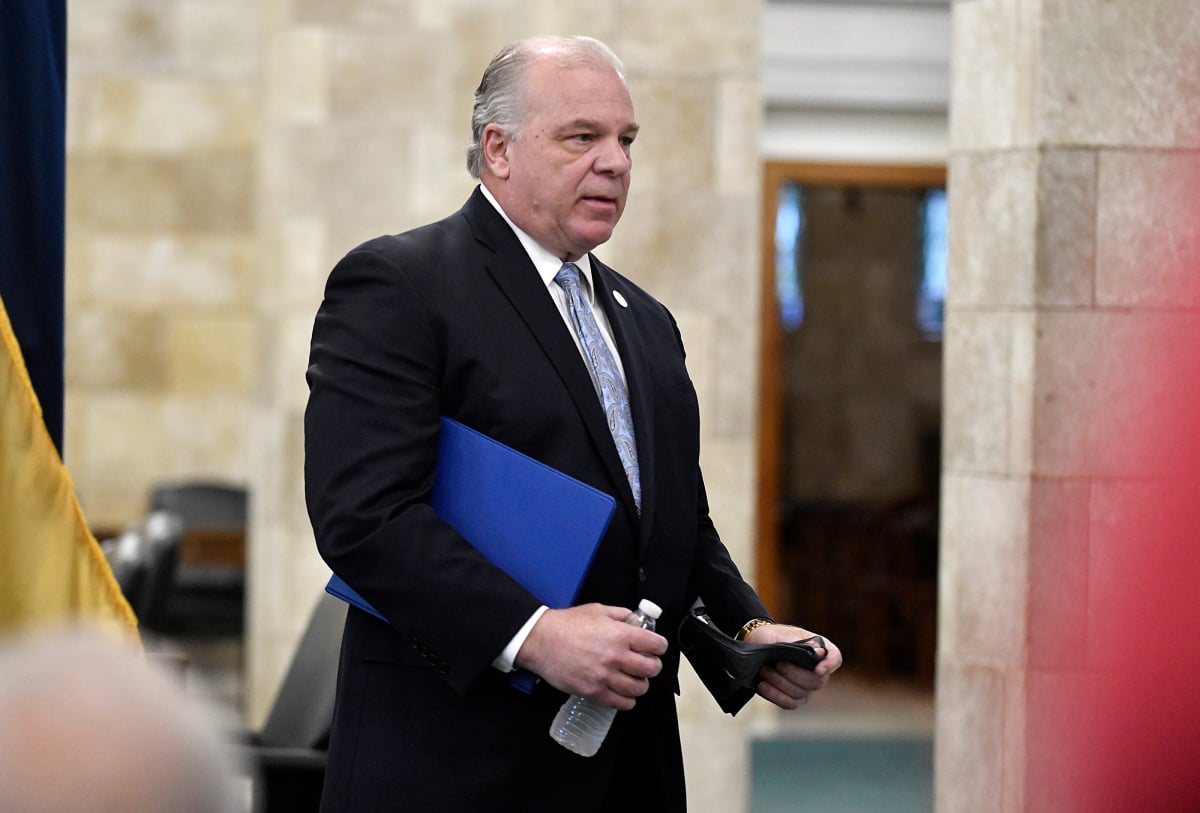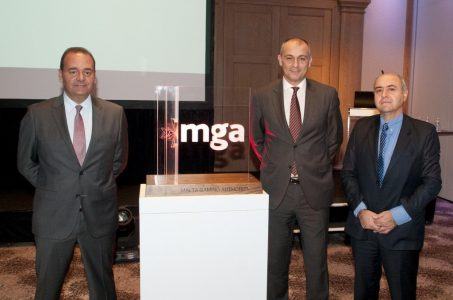Outgoing NJ Senate President Stephen Sweeney Pushes Atlantic City Casino Relief
Posted on: November 15, 2021, 11:52h.
Last updated on: November 15, 2021, 05:28h.
New Jersey Senate President Stephen Sweeney (D) has been a loyal ally of Atlantic City casinos during his nearly 20-year run as a state Senator in Trenton. Now a lame duck, Sweeney’s swan song could be a major concession to the current nine gaming resorts by way of reducing their property payments.

First elected to the New Jersey Senate in 2002, Sweeney was shockingly defeated during this month’s election by a little-known Republican truck driver.
One of the state’s most powerful Democrats over the past two decades, Sweeney isn’t sitting idle until his successor is sworn in. Instead, legislation that he introduced in June that could save casinos tens of millions of dollars in reduced payments under the state’s payment-in-lieu-of-taxes (PILOT) program is being resurrected.
S4007 is Sweeney’s Senate version of a similar bill proposed in May by Assemblyman John Armato (D-Atlantic). The pieces of legislation seek the same goal: strip online gaming and mobile sports betting revenue from the total gross gaming revenue (GGR) figure that is used to calculate the nine casinos’ collective PILOT assessment each year.
Sweeney’s PILOT bill today advanced out of the Senate Community and Urban Affairs Committee.
Amending Payment Structure
The 2016 PILOT bill, which Sweeney authored, withdrew property taxes on Atlantic City casinos. In exchange, they agreed to pay the state and Atlantic County at least $120 million annually. The law came after several casinos successfully challenged their property tax valuations in the wake of five casinos closing between 2014 and 2016.
PILOT was seen as a way to guarantee that tax revenue would continue to flow into the state and county in a timely, expected manner. The total payment is dependent on GGR.
The 2016 arrangement, which is to run for 10 years, came before New Jersey legalized internet casino gambling and online sports betting. The land-based casinos argue that since they share much of their iGaming revenue with third-party operators, most of which aren’t located in Atlantic City, that income shouldn’t be tied to the PILOT program.
GGR from internet casinos and online sports betting flourished throughout much of the pandemic, while Atlantic City’s retail gambling tumbled. But Atlantic County officials say Sweeney and Armato’s bills favor the casinos instead of residents.
We will obviously end up back in court,” Atlantic County Executive Dennis Levinson told the Press of Atlantic City. “I’m going to fight for the taxpayer.”
Atlantic County receives 13.5 percent of the PILOT payments.
Bill Differences
State lawmakers could have options in considering amending the PILOT structure.
Amato’s bill simply sets the 2022 PILOT payment at $125 million. Sweeney’s bill sets the 2022 number at $110 million but could increase if brick-and-mortar GGR greatly rebounds next year. By comparison, the casinos paid $150 million under PILOT last year.
In related developments, Sweeney’s forthcoming exit as the state’s second-most-powerful Democrat behind Gov. Phil Murphy could be good news for anti-casino smoking advocates. Sweeney has largely shared the thinking of the Casino Association of New Jersey, in that now is not the time to end the clean air indoor loophole afforded to casinos.
Advocates such as the “Americans for Nonsmokers’ Rights” recently told Casino.org that they hope Sweeney, during his lame-duck session, finally fights for workers’ rights to a workplace free of tobacco smoke and pushes legislation to end casino smoking.
Related News Articles
Most Popular
LOST VEGAS: The Foster Brooks Robot at MGM Grand
Bally’s Sets Date for Tropicana Las Vegas Implosion & Party
Most Commented
-
VEGAS MYTHS RE-BUSTED: You Don’t Have to Pay Resort Fees
— August 2, 2024 — 16 Comments -
VEGAS MYTHS RE-BUSTED: Elvis Was a Straight-Up Racist
— August 9, 2024 — 11 Comments -
ANTI-SOCIAL BEHAVIOR: Vegas Casino Buffet Stunt in Poor Taste Goes Viral
— August 16, 2024 — 7 Comments -
VEGAS MYTHS RE-BUSTED: The Strip Tried Appealing to Families and Failed
— August 23, 2024 — 7 Comments
















Last Comments ( 3 )
One down and four to go
Sweeney is a loser and got what he deserved
He caused a lot of Damage and destroyed lives. He orchestrated wrongful terminations and abused his power by violating the color of law to have police make false Arrest on baseless allegations from a former manager at US visions who was rewarded a job at an accounting firm He additionally broke massive civil rights violations. He’s a Criminal, Bully, Racist. Sweeney is a hateful man with a black heart. He’s evil, sneaky and sexually harasses women then compromised judges and law enforcement to harass; stalk and persecute former elected officials Sweeney told Christie he was coming After them and he did. Sweeney lost The election and became a National Embarrassment to the entire world. He will go down as the so called powerful senator who lost to a truck driver who only spent $153 to beat his dirty nasty ass to a pulp. This went viral on Saturday Night Live It was hysterical. NJ power Senator who bullied and harmed the people in NJ for decades by controlling jobs and seeking revenge for his ass beat brutally on Election Day. He insisted just Like Trump that the votes were not all accounted for. He claimed their were over 12000 bites in a bag. The votes turned out to be Dead a people dating back to 1865 during slavery. Many of them were slaves who Sweeney family killed. Sweeney couldn’t risk counting these votes so he had to concede now that he was splattered all over CNN; MSNBC; FOX News; BBC; Associated Press; Time Magazine and thousands of social media sites. He is a national embarrassment just like Christie who became the worst governor in American history who lied and threw people under the bridge. Literally. He will never win anything. He is hated, both of these degenerates are a waste of their fathers Sperm Cunningham their old drunk who lied to police and crash a car stood with her criminal buddies where she belongs. She can’t get through a day without a glass of liquor in her hand. She’s another embarrassment to our state New Jersey is a freaking mess and a joke to the world. This garbage running it is a disgrace to humanity and to themselves Sweeney is trying to rebuild himself and his hack friends writing paid off news articles to make him seem good. This is an even bigger joke His life will be crap for here in. Nobody respects him and he is a laughing stock. People smile in his face and talk about him like a dog behind his back. He’s is not respected or feared. He’s just a hot mess joke all over the world